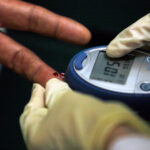South Africa will soon get its own facility to make tablets to treat HIV and other ailments.
The recently established state-owned pharmaceutical company, Ketlaphela, will start to produce antiretroviral drugs in 2019, according to the department of science and technology.
The government does not produce antiretrovirals, which are imported or manufactured by the private sector.
Ketlaphela, which was established in February 2015 and is based in Pretoria, is a subsidiary of Pelchem. Pelchem, in turn, is a subsidiary of the South African Nuclear Energy Corporation.
Ketlaphela’s pharmaceutical manufacturing plant is under construction.
South Africa has the world’s largest government-funded antiretroviral programme, with an estimated 3.2-million people on treatment.
This number could more than double to 6.8-million if the country adopts recent World Health Organisation guidelines that recommend that everyone infected with HIV is put on medication, regardless of the strength of their immune systems or their CD4 count. CD4 cells are white blood cells that help the body fight infection.
At the moment, South Africa only provides antiretrovirals to people with a CD4 count lower than 500 and to all HIV-positive pregnant women and children younger than five.
Science and technology department spokesperson Lunga Ngqengelele said the new company will not only source and supply the drugs, but also “other essential medicine as and when required by the department of health”.
“It is envisaged that the first Ketlaphela branded tablets will be available at the beginning of 2017.”
Ngqengelele said Kelaphela will probably improve the availability of medication in government health facilities by targeting the shortages periodically experienced by the department of health.
He said Ketlaphela aims to bridge “the gap between the research and development capabilities in South Africa, by adding chemical manufacturing, integrated with secondary pharmaceutical manufacturing (tablet formulation) and targeting the burden of diseases, initially for South Africa and subsequently expanding into the Southern African Development Community and Southern Africa”.
Ngqengelele said the company will outsource manufacturing until it establishes the ability to do so itself. “The formulation of the tablets will be outsourced to South African companies with spare formulation capacity.”
Ina Skosana was a health reporter at Bhekisisa.





